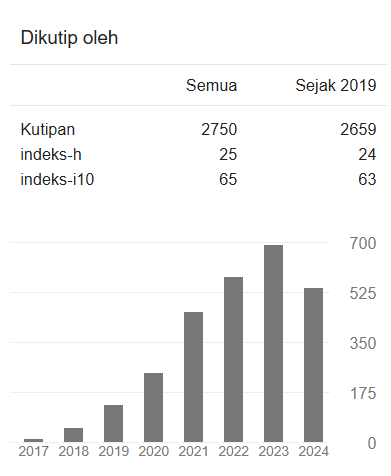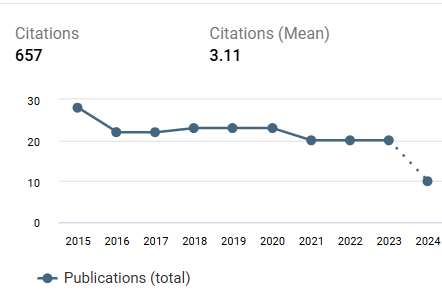Pengembangan Mobile Learning Pada Mata Kuliah Geometri Dengan Pendekatan Matematik Realistik Ditinjau Dari Kemampuan Berpikir Kritis Mahasiswa
DOI:
https://doi.org/10.22219/jinop.v1i2.2570Abstract
ABSTRAK
Tujuan penelitian ini adalah mengembangkan Mobile Learning dengan pendekatan matematik realistik pada mata kuliah Geometri ditinjau dari kemampuan berpikir kritis. Adapun target khusus yang ingin dicapai dalam penelitian ini yaitu menguji efektifitas perangkat pembelajaran Mobile Learning dengan pendekatan matematik realistik pada mata kuliah Geometri ditinjau dari kemampuan berpikir kritis mahasiswa Program Studi pendidikan Matematika Universitas PGRI Semarang. Prosedur pengembangan perangkat pembelajaran menggunakan model yang dikembangkan Borg dan Gall yang meliputi 10 tahapan. Dalam penelitian ini tahapan yang dilakukan hanya sampai pada tahap kelima yaitu Main Product Revision.
Analisis pada penelitian ini dilakukan dengan membandingkan antara data dengan kriteria-kriteria, yaitu praktis dan efektif. Pada kriteria praktis menunjukkan hasil evaluasi ahli media sebesar 93%, ahli materi sebesar 83%, dan mahasiswa sebesar 86%. Dalam kriteria efektif produk ditunjukan dari prestasi belajar kelas eksperimen lebih baik dibanding dengan kelas kontrol. Dari analisis menggunakan uji-t didapatkan thitung > ttabel yaitu 5,98 > 1,71, maka Ho ditolak artinya pembelajaran dengan menggunakan media mobile learning dengan pendekatan matematik realistik lebih baik dibandingkan dengan pembelajaran konvensional. Jadi dapat disimpulkan bahwa media mobile learning dengan pendekatan realistik matematik ini efektif digunakan sebagai proses pembelajaran.
Kata Kunci: Mobile learning, Geometri, Pendekatan Realistik Matematik.
ABSTRACS
The purpose of this research is to develop a Mobile Learning with realistic mathematical approach to the subject geometry in terms of critical thinking skills. The specific targets to be achieved in this research is to test the effectiveness of the learning Mobile Learning with realistic mathematical approach to the subject geometry in terms of critical thinking skills of students in Mathematics Education Study Program University of PGRI Semarang. Learning software development procedures using the model developed Borg and Gall which includes 10 stages. In this research phase is done only until the fifth stage, namely Main Product Revision.
The analysis in this study is done by comparing the data with the criteria, that is practical and effective. On practical criteria shows the results of the expert evaluation of media by 93%, amounting to 83% of material experts, and students by 86%. Effective products in the criteria indicated from experimental class learning achievement better than the control class. From the analysis using t-test obtained t count> t table ie 5.98> 1.71, then Ho is rejected it means learning using mobile learning media with realistic mathematical approach is better than the conventional learning. So it can be concluded that mobile learning media with realistic mathematical approach is effectively used as a learning process.
Keywords: Mobile learning, Geometry, Mathematical Realistic Approach.
Downloads
Downloads
Published
How to Cite
Issue
Section
License
Copyright Notice
Authors who publish with JINoP (Jurnal Inoasi Pembelajaran) agree to the following terms:
- For all articles published in the JINoP (Jurnal Inovasi Pembelajaran), copyright is retained by the authors. Authors give permission to the publisher to announce the work with conditions. When the manuscript is accepted for publication, the authors agree to the automatic transfer of the publishing right to the publisher.
- Authors retain copyright and grant the journal the right of first publication with the work simultaneously licensed under a Creative Commons Attribution 4.0 International License. that allows others to share the work with an acknowledgment of the work's authorship and initial publication in this journal.
- Authors are able to enter into separate, additional contractual arrangements for the non-exclusive distribution of the journal's published version of the work (e.g., post it to an institutional repository or publish it in a book), with an acknowledgment of its initial publication in this journal.
- Authors are permitted and encouraged to post their work online (e.g., in institutional repositories or on their website) prior to and during the submission process, as it can lead to productive exchanges, as well as earlier and greater citation of published work (See The Effect of Open Access).








